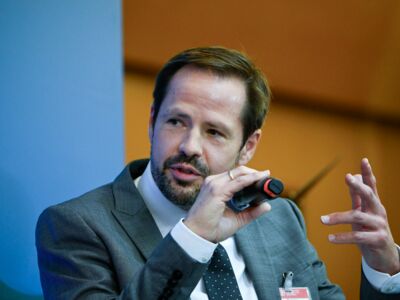Extracts of the side events
27/07. Potentialities of South-South Cooperation in the Nurture the Future Project
14:00 – 15:30 (EAT). Room: CR-3 Concept note 2 pp.
Organizers and partners: Ministry of Health of Brazil; WFP Centre of Excellence against Hunger Brazil; Ministry of Health of Peru; Ministry of Health of Colombia; Brazilian Cooperation Agency of the Ministry of Foreign Affairs.
The Nurture the Future project aims to strengthen responses to the multiple burden of malnutrition among school-aged populations by promoting regional cooperation and the exchange of best practices. Based on the lessons learned from Nurture the Future, experiences from the three cooperating countries will be presented, focusing on double duty actions aimed at promoting healthy and sustainable food systems for school-aged populations. The Nurture the Future project, is implemented since 2019 within the partnership between Brazil, WFP, in collaboration with Peru and Colombia.
27/07. Showcasing Nigeria's Innovations and Collaborations in Food Systems Transformation
14:00 – 15:30 (EAT). Room: CR-6. READ THE FLYER | PROGRAMMEOrganizers and partners: Federal Ministry of Budget and Economic Planning (FMBEP); Federal Ministry of Agriculture and Food Security; FAO, WFP, IFAD, GIZ, GAIN, GFAiR.
This event highlighted innovative, locally driven initiatives and policy advancements, showcasing Nigeria’s leadership in building resilient, equitable, and sustainable food systems. Through integrating grassroots actions with national and global goals, Nigeria is generating scalable, evidence-based solutions that advance gender equity, youth empowerment, and climate resilience. The event aims to share successes, foster collaboration, mobilize resources, and amplify underrepresented voices, positioning Nigeria as a model for inclusive food systems reform and inspiring similar efforts globally.
- Opening Remark - among others:
Ms. Jeanine Cooper, Board Chair & Director, Alliance for Local Food and Nutrition Supply Chain in Africa (Alliance Africa) and Former Minister of Agriculture, Liberia, was represented by Ms. Samira Hotobah-During, Director, Coordinator and Focal Point Alliance Africa.
Ms. Dede Ekoue IFAD Nigeria Country Director (UN Nigeria Rep) - Keynote Address and Official Opening of the Session: Senator Abubakar Kyari, CON, Honorable Minister of Agriculture & Food Security, Nigeria
Organizers and partners: European Union, DG INTPA, with Agrinatura through SASI SPI project; Cameroon; Madagascar; The Netherlands; Somalia; Zambia; GIZ (AgSys programme in Cameroon); UNFSS Zero Hunger Coalition; WFP, Crop Trust, IFAD, the Resilient Local Food Supply Chain Alliance and the Zero Hunger Coalition.
This event highlighted how policy alignment and blended finance support local food chains in Cameroon, Zambia, Madagascar, and Somalia. It also explored how African and European partners are collaborating to strengthen the vital links between food, climate, biodiversity, transport and energy.
Panel 2: Public investments leveraging private investments in thriving economies
- Grace Mbong Food Systems National Convenor, Secretary General, Ministry of Agriculture and Rural Development of Cameroon - “Public support to leverage private investments in local value chains”
- Andreas Schaumayer (see picture) Head of Division for Food Security and Fisheries, BMZ, Germany “A BMZ success story combining climate and food security”
- Sara Mbago-Bhunu (see picture) - Regional Director for East and Southern Africa, IFAD, Nairobi, Kenya - “The impact of international finance on value chain development and adaptation”
- Conrad Rein Secretary General, Global Flagship Initiative for Food Security, Bonn, Germany - “Reshaping the landscape of investors in resilient food systems”
 27/07. Lessons from Multi-Country, Cross-Sectoral Approaches to Agri-Food Systems Transformation
27/07. Lessons from Multi-Country, Cross-Sectoral Approaches to Agri-Food Systems Transformation
Organizers and partners: Japan International Research Center for Agricultural Sciences (JIRCAS); Ethiopia Institute of Agricultural Research (EIAR); Japan’s Ministry of Agriculture, Forestry and Fisheries (MAFF); World Agriculture Forum; FAO Forestry Division, Halting Deforestation, Degradation, Emissions Team; Ajinomoto Co., Inc.; Greein Inc.; The Vietnam Gardening Association (VGA); Uganda’s Ministry of Water and Environment (MWE).
Nations such as, Japan, Ethiopia, Uganda and Vietnam, have emphasized thecritical role of Science, Technology, and Innovation, while acknowledging that there are “no-one-size-fits-all” approaches.
- Dr. Kaori Ono (picture) - Executive Officer in charge of Sustainability, Ajinomoto. The Ajinomoto Group leverages its strengths and work with scientists, policy makers, business leaders, and stakeholders globally and locally to achieve more impactful results. In 2024, it joined the World Business Council for Sustainable Development (WBCSD). The Ajinomoto Group will continue leveraging its tangible and intangible assets developed through "AminoScience."
27/07. Country Experiences on Mainstreaming Agroecology as Food System Transformation Pathway
14:00 – 15:30 (EAT). Room: Caucus Room 11 READ THE CONCEPT NOTE
Organizers and partners: Ministry of Agriculture and Environment - Vietnam; Ministry of Agrarian Development - Brazil; Ministry of Agriculture and Livestock Development - Nepal; Ministry of Agriculture - Zambia; Agroecology Coalition; Biovision Foundation; World Future Council Foundation; Fundación Alpina; European Commission - Joint Research Centre; ICEI; IFOAM - Organics International; Instituto Regenera; United Nations Foundation; University of Coimbra - Centre for Functional Ecology; Alliance Bioversity - CIAT India office; Local Initiatives for Biodiversity, Research and Development (LI-BIRD); Tarayana Foundation.
This event highlighted implementation and finance mobilization efforts to operationalize strategies and scale transitions. It emphasized the role of transdisciplinary research, local knowledge systems, and participatory evidence generation in strengthening science-policy-society interface in the design, implementation, and evaluation of policies enabling agroecological food systems.




No comments:
Post a Comment